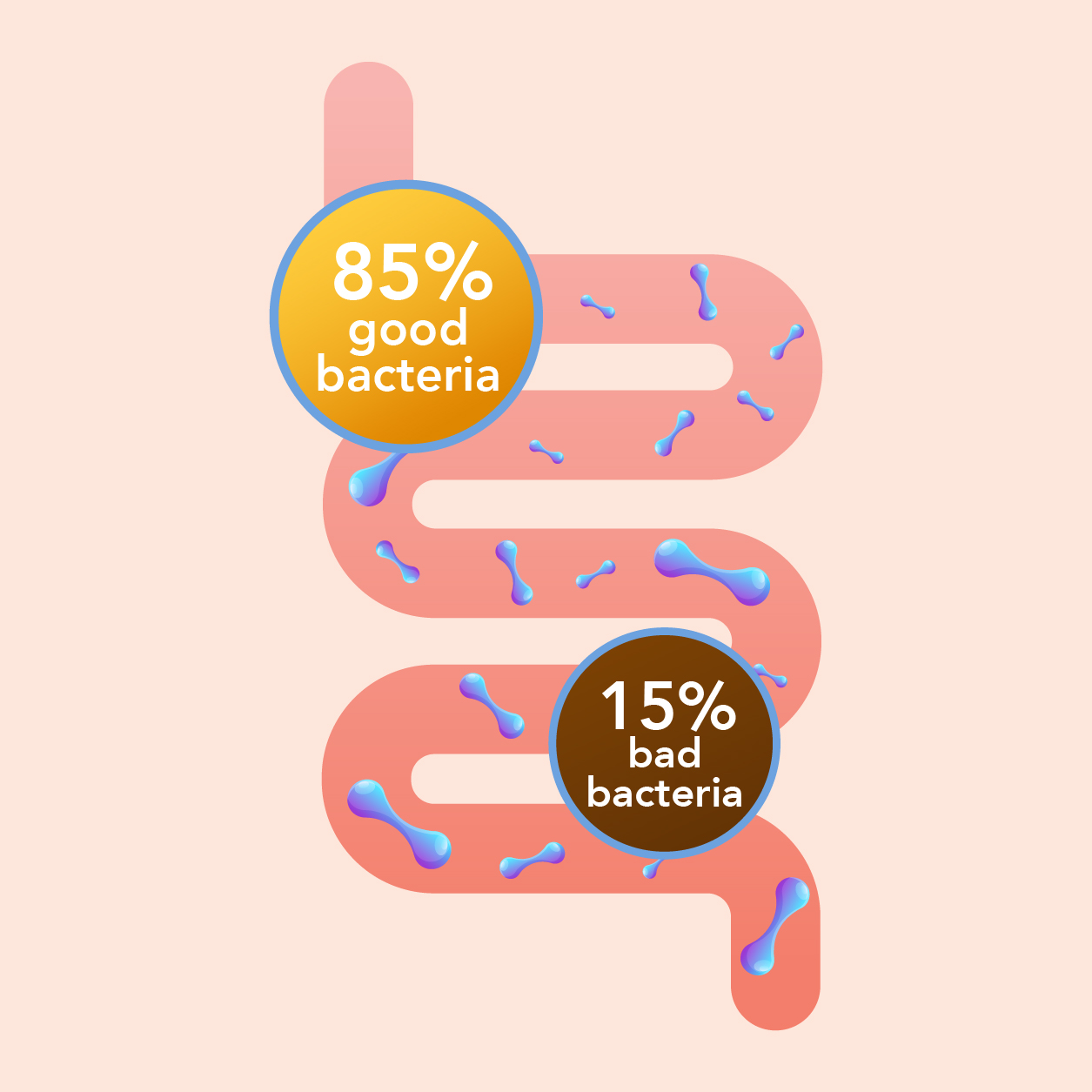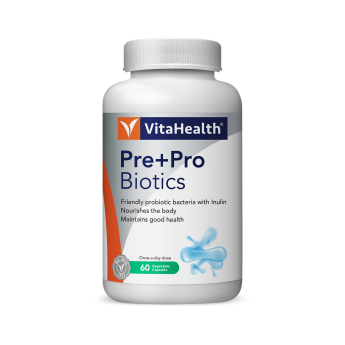Your gut is home to approximately 1-2kg or 100 trillion bacteria! These bacteria are ten times more than the number of cells in your entire body. Bacteria are not all bad. In fact, most of them are beneficial for maintaining good health. These good bacteria are known as probiotics.

The delicate balance of gut microbiota
A healthy gut should be composed of a ratio of 85% good bacteria and 15% bad bacteria. The key is to promote the growth of good bacteria while reducing the amount of the bad.
However, the delicate balance of gut microbiota can be disrupted by numerous factors such as:
- Stress
- Poor dietary choices
- Certain medications
- Lack of exercise
- Tobacco
- Alcohol
- Physical activity
When your body does not have enough good bacteria, bad bacteria can thrive. Known as dysbiosis, it can lead to a wide range of health conditions such as:
- Bloating
- Constipation or diarrhea
- Fatigue
- Skin rashes
- Weight fluctuations
- Poor concentration
Probiotic + prebiotic = synbiotic
There are hundreds of varying strains of bacteria in a healthy gut, with each strain working in different ways. These probiotic strains have been clinically validated to benefit your body.
- Lactobacillus plantarum Lp-115
- Lactobacillus acidophilus La-14
- Bifidobacterium animalis subsp. lactis HN019
- Lactobacillus casei Lc-11
- Lactobacillus paracasei spp. paracasei Lpc-37
- Lactobacillus rhamnosus Lr-32
- Lactobacillus salivarius Ls-33
Probiotics work synergistically with prebiotics, non-digestible fibers that feed the good bacteria, stimulating their growth and activity in your gut. Inulin is one of the best-known examples of prebiotics. Combining probiotics and prebiotics in a powerful synergy, known as synbiotic, can optimise the beneficial effects of both.

Gut health
Probiotics have been shown to promote gut health and optimise the absorption of nutrients. They stimulate the enzymatic activities which break down the food you ingest. In the colon, probiotics promote regular bowel movements to eliminate waste and toxins from your body. Good digestive health will ultimately relieve several digestive conditions including gas, nausea, constipation and abdominal discomfort. Probiotics also help restore the gut microbiota after antibiotic treatment.

Immune defence
Your gut and your immune system are closely linked. With 70% of immune cells residing in your gut, probiotics also play a vital role as the first line of defence against infections. Probiotics reinforce the integrity of the gut barrier, providing an extra level of defence against infectious bacteria and other triggers from entering the bloodstream. By establishing colonies of good bacteria in the gut, probiotics help inhibit common pathogens which otherwise the immune system would have to deal with.
How to choose the right probiotic formula?
Supplementing with probiotics offers a fast and effective way to replenish the good bacteria in your gut. But not all probiotics are created equal. For maximum benefits, look for a formula that:
- Contains the right strain for the right function
- Contains strains that are clinically proven for efficacy
- Is added with prebiotic to stimulate the growth and activity of probiotics in the gut
- Can survive the transit through the acidic stomach to reach the gut
- Contains multiple strains for diverse health benefits
- Is stable at room temperature and remains viable at the time of ingestion







